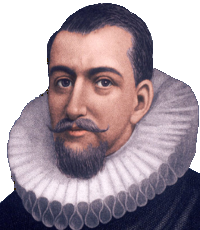8. The European expansion
A study of comparative international systems is by definition a historical study. There are no separate international systems to compare anymore. There is only one system — the system which first made its appearance in Europe in the late Renaissance, and which later came to spread to every corner of the globe. But “spread” is not the right word. This was not a matter of a process of passive diffusion. Rather, the eventual victory of the European international system was a result of the way the Europeans first came to “discover” and later to occupy and take possession of most non-European lands. This is a story of imperialism and colonialism. In this, the final chapter of the book, we will tell the story of how Europe for a while at the turn of the twentieth century came to rule the world.
For most of its history, Europe had quite a peripheral position in relation to everyone else. Europe was an international system turned in on itself, confident in its own culture and largely uninterested in what was going on elsewhere. Moreover, outsiders made only occasional forays into Europe — like the Berber kingdoms in the eleventh and twelfth centuries and the Mongols in the thirteenth century. What these outsiders found were a few impressive cathedrals, the occasional castle, but also a lot of desperately poor people, serfs without much food and without education. Before the year 1500, no European city was a match for the splendors of Baghdad, Xi’an, Kyoto or Tenochtitlan.
Yet Europe eventually did become rich, powerful and important, and it came to have a profound impact on the rest of the world. In the first half of the fifteenth century, Europeans began to embark on sea voyages which took them down the western coast of Africa, and eventually far further afield. Here they discovered a number of commodities which found a ready market back home. Before long the Europeans began looking for new goods and for opportunities to trade. The commercial activities transformed Europe’s economy and enormously strengthened the institutional structure of the state. It was now that the Europeans established their first permanent colonies overseas. In some areas, such as in the Americas, Europeans settled permanently, but in Asia, they mainly established small trading posts.
Beginning at the end of the eighteenth century, the development of an industrial economy based on mechanical production in factories radically changed European societies, making them “modern.” Modernization entailed changes in next to all aspects of social, economic and political life — often analyzed as a question of “urbanization,” “industrialization,” “democratization,” etc. As far as the rest of the world was concerned, the modernization of Europe had a number of far-reaching consequences. The Europeans needed raw material for the goods they were producing and often these resources could be found outside of Europe. Moreover, European producers needed to find people who were prepared to buy all the things their factories were spewing out. The hope was that these consumers could be found in India, for example, or in China. And as people outside of Europe were to discover, the industrial revolution had given the Europeans access to far more lethal weapons than ever previously. Armed with these new incentives, and these new guns, the Europeans set out to conquer the world.















